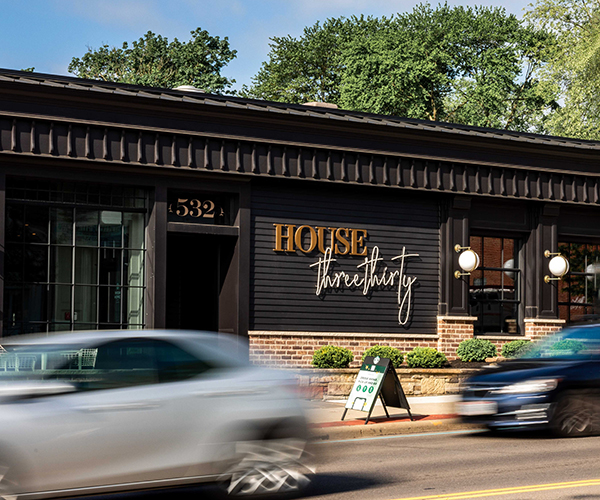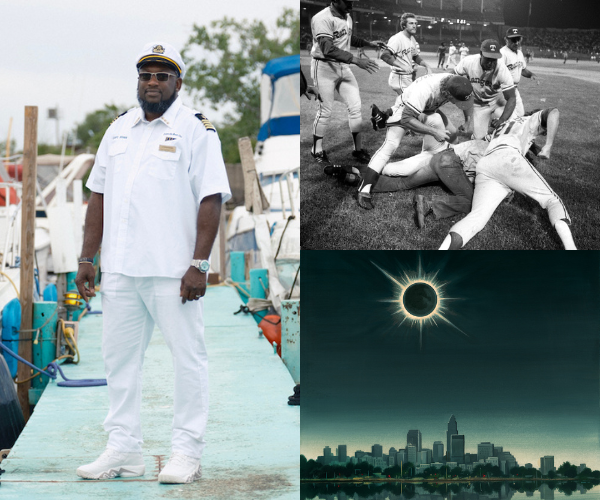At 4 o'clock, the judge gave us the case. Everyone in the courtroom stood, except the man in the wheelchair, and we walked out to the jury room.
Finally, after four days of trial, we could say what we thought. We could talk about the disabled man and his disease, his doctors and what they had and hadn't done for him, both sides' lawyers and expert witnesses. We would decide if the man went home with millions of dollars or nothing.
I'd made up my mind. I felt so strongly that I knew I'd be angry if six of the other seven jurors disagreed and the verdict went the other way.
We picked a foreman, then fell silent.
"Everyone seems shy," I said, "so I'll go first."
I offered the arguments I'd been running through my head all day. Then I looked around to see who would speak next. Would we all agree? Or was I the only one who felt the way I did?
Maybe you've heard that Ohio has a malpractice crisis, that insurance costs are driving doctors out of business. I'd read about it, but never expected to be drawn into it, even when the jury summons arrived in the mail — a little card that told me to come to the Justice Center downtown for at least five days starting Dec. 15.
At first, jury duty meant a lot of waiting: an endless line to check in, a few hours in an airportlike waiting room filled with dozens of people, rows of chairs, several TVs and squawking PA announcements. I read a novel, was called up to a courtroom, sat through hours of jury selection, didn't get picked and was told to come back the next day.
On Tuesday, 20 or so of us were called up to another case. The judge's assistant lined us up according to a roster of names and led us into the courtroom. The first eight people sat in the jury box, the rest of us in the audience. We walked past a bunch of people standing at the plaintiff and defense tables. I wondered who the man in the wheelchair was.
The lawyers asked the people in the jury box endless questions: What did they do for a living? Did they have opinions about the issue of medical malpractice? Could they set sympathy aside and rule against a handicapped person? Even at Christmastime?
The disabled man, wearing a sweater and shorts, rose from the chair occasionally, uncomfortable from sitting, and propped himself up against the table.
After three jurors were kicked off, the judge called me to the box and asked what I did for a living.
"I'm a writer and editor."
He asked if I had to weigh both sides of a story before writing, and I said yes. The lawyers posed their usual questions, then asked if I'd ever written about malpractice or disability issues. I hadn't. They kept me.
The plaintiff's lawyer was a tall man with a craggy, dignified face. His client, Bill, a 59-year-old car upholsterer, was in constant pain, he told us in his opening argument. He couldn't walk and had to wear Depends. Wearing long pants was excruciatingly painful. His medications left him continually sleepy and feeling doped-up. It was a terrible story, but I waited to hear what the doctors had done to hurt him.
Bill would be in far better condition today, his lawyer finally said, if the doctors had diagnosed his condition when he first came to the hospital. Signs of his disease were visible in the first MRIs the doctors examined, but they hadn't noticed. In the three months it took them to diagnose Bill's problem and order surgery, he went from bad to worse, and his condition was now irreversible.
The argument sounded weak to me. The doctors hadn't injured him. They just hadn't figured out what was wrong right away.
I looked over at the defense table. One doctor, a neurosurgeon, was a silver-haired woman with a thin face and a frown that she wore like a shield. The other doctor, a neurologist with thinning, unruly hair and lively eyes behind round glasses, seemed less threatened, his discomfort at being in court mixed with curiosity.
Their lawyers argued that the doctors had done their best to diagnose Bill's condition, and that the second doctor did eventually figure it out. One lawyer held up a poster with statistics from a medical journal, which showed that the disease usually took much longer than three months to diagnose.
I knew which way I was leaning. But there were four days of testimony ahead.
Two doctors testified for the plaintiff as expert witnesses. They said they could see the engorged blood vessels that had pressed on Bill's spine and injured it in the MRIs from his first hospital visit. But they hadn't done a blind read; the lawyer had told them what disease to look for.
Back in the jury room during a break, a couple of jurors marveled at one expert's recall of details. I thought the young Harvard Medical School graduate was too slick. When he'd asked me what book I was reading while the lawyers were talking to the judge, I could tell he knew persuading us was his job.
But I kept quiet. The judge had warned us not to talk about the case until it was over.
So conversation turned to people's jobs, kids and divorces. A hockey mom got into a long talk with a youth-hockey referee. As people opened up, I looked up from my book more often and joined in. I ate lunch with the other younger guys on the jury at the Justice Center cafeteria, at a table as far from the lawyers, doctors and Bill as possible. We weren't allowed to talk to them.
My seat in the jury box was right next to the witness stand. It was hard to watch Bill work his way to the stand on crutches and to hear him say that his legs hurt so badly he's wished for them to be amputated. I thought about the effect our verdict would have on his life and my opinions wavered.
But when the case turned to how much money Bill wanted, my suspicion grew again. A nurse had written a "life plan" for him that listed all the medical care and support she thought his condition would require for the rest of his life. But his own pain doctor wouldn't sign off on the life plan; he said he couldn't predict what help Bill would need. The nurse, too, was trying too hard to impress; she kept looking at the camera, not the questioner, during her taped deposition.
A jolly economics professor testified that the life plan would cost $1 million. When cross-examined, he revealed that his expert-witness business makes more than that a year.
Bill's distinguished-looking lawyer called each doctor to testify, then sat down. A big, bald lawyer with huge eyes stood up. He was the badger, trying to catch the doctors in a lie. He let out heavy, theatrical sighs when he didn't like their answers.
But the doctors didn't crack. The lawyer just chased them around on inconsistencies that didn't matter much.
Back in the jury room, someone mentioned the lawyer's name. Another juror joked he looked more like a Bronco or a Butch.
At the end of the day, the plaintiff rested his case. I walked out angry.
Another juror caught up with me at the elevator. "I don't think we need all these expert witnesses," she said.
"We'll see," I replied, but her comment cheered me up. It sounded as if she was thinking the same thing as me.
The doctors testified again for their own side. They sounded thorough, as if they'd kept asking what was wrong until they found the right answer. The neurosurgeon said she hadn't been sure what was wrong with Bill, so she called in her colleague, who was one of the smartest doctors she knew.
The neurologist, again, seemed more at ease. He'd taken notes while other witnesses testified and roamed the courtroom for a better look at exhibits. Now, he talked us through his notes from the day when he thought of testing for the engorged blood vessels. It sounded as though he'd been smart to think of them as early as he did.
Two more experts said they couldn't see the blood vessels in the first MRI either. They said the disease typically keeps getting worse, instead of improving for a while, as Bill's condition had.
Then the defense played a videotape of a plaintiff's witness the plaintiff hadn't called. It was a doctor in Toledo who admitted that he couldn't see the blood vessels in the MRI either.
Finally, on Monday afternoon, the lawyers made their closing arguments. The dignified lawyer seemed sheepish as he suggested that we award Bill $1 million, $2 million or more for pain and suffering. As the judge gave us our instructions, I felt nervous. Soon, it'd be our turn.
The judge sent us to the jury room.
"I don't think the doctors committed malpractice," I offered. Bill was suing his doctors for not being perfect. He had a rare disease that didn't act like it normally acts. Yet he sued because the doctors didn't diagnose it right away.
The hockey mom spoke next. She wanted to rule for the neurologist for sure, but she wasn't sure about the neurosurgeon. She felt the neurosurgeon should have asked more questions.
Then a guy across from me spoke. He felt bad for Bill, but he wanted to rule for the doctors, too. Sometimes it takes time to diagnose a disease, he said.
Others agreed. Someone said they'd be happy to go to the second doctor if they needed a neurologist, and someone else said they would, too. When I saw we had six votes for both doctors, I relaxed.
The last juror also wanted to rule for the neurologist and had doubts about the neurosurgeon. I said she'd done the right thing: When she wasn't sure what to think, she'd consulted another doctor. Soon, everyone agreed the plaintiff hadn't proven his case. We signed the verdict form saying the doctors hadn't committed malpractice. I rang the bell to call the judge's assistant.
I didn't look to see how Bill reacted when the judge read our verdict. I felt awful about his disease, but it was no one's fault. The neurologist sighed with relief when he heard the verdict. The other doctor had already left.
The judge invited us into his chambers. It was the weakest case he'd seen go to trial in years, he said. He'd told the lawyers we'd be back with a verdict within an hour.
He couldn't throw the case out once Bill's lawyers found expert witnesses, he said. Some doctors make a hobby out of being experts because they like seeing new cities and getting paid to hear themselves talk, he added. I could tell he wasn't impressed with the Harvard grad.
In England, he noted, if people sue and lose, they have to pay the defense's court costs. Maybe that would discourage suits like these, he said.
The lawyers came back to ask us our opinions about the case. Another juror asked the neurologist's lawyer about his client.
He's moving away, the lawyer said. The legal climate in Ohio has gotten too hostile.
Wait, I thought, flush with anger. We just ruled for him. What's going on?
If you're in a high-risk field and a certain number of patients sue you, it doesn't matter that you win the cases, the lawyer explained. The insurer still thinks you're too much of a risk.
But you sent a message, loud and clear, he added. The doctor will appreciate it.
That didn't console me. Our verdict hadn't kept the lawsuit from hurting the doctor.
I told the lawyer he'd done a good job and that some of us had said we'd want his client as our doctor, and I left.
The big-eyed lawyer shook my hand on the way out. But I didn't want to stick around if talking to him and his partner helped them get better at bullying doctors.
A few weeks later, The Plain Dealer ran a story about the neurologist leaving town. He'd been sued six times, but he'd never lost or settled a case. Still, his malpractice insurance had been canceled.
I looked up the neurosurgeon's court record. She'd been sued before, too, and she settled some suits just before trial.
The neurologist moved to Colorado, where malpractice insurance is much more affordable for him. The difference, advocates for doctors will tell you, is that Ohioans are generous when we serve on juries and there are no limits on what we can award the injured. Colorado has enacted tort reform, which limits jury awards.
The Ohio legislature, led by Republicans, has passed tort reform many times, but the state Supreme Court has struck it down as a limit on the right to a jury trial. In January 2003, right after more conservative justices were elected to the court, Gov. Bob Taft signed a new malpractice tort-reform law, hoping the court will uphold it when it's inevitably challenged again.
Many Democrats and trial lawyers say tort reform is unfair to injured people. They'd rather pass new regulations on malpractice insurers, who they say are making up for bad business decisions by gouging doctors. They'd probably argue that the English system the judge mentioned would unfairly restrict access to the courts, making it harder for poor people to sue.
Some local doctors even want boards of doctors, not juries, to decide malpractice cases. You may have seen their group's angry billboards around town.
Sorting out all the possible solutions would take an article longer than this one. (Our August 2002 article "Code Blue" is a good start.)
But we have to do something. Cleveland's economy is relying on its medical centers more than ever as our manufacturing jobs disappear. Keeping talented doctors at The Cleveland Clinic, University Hospitals and other local hospitals helps keep us healthy.
The jury I was on did our part to stop scaring doctors away from Cleveland. But it wasn't enough.



